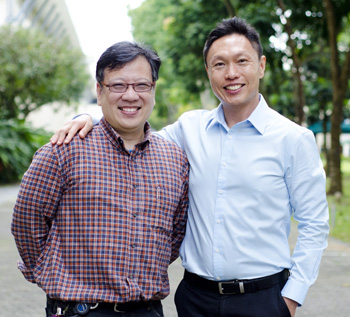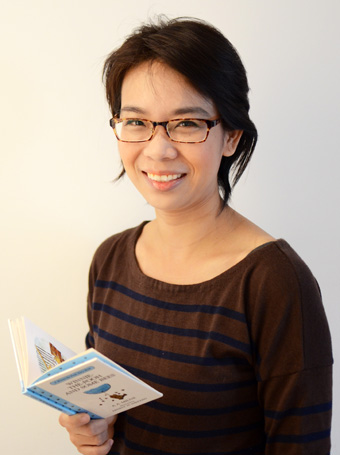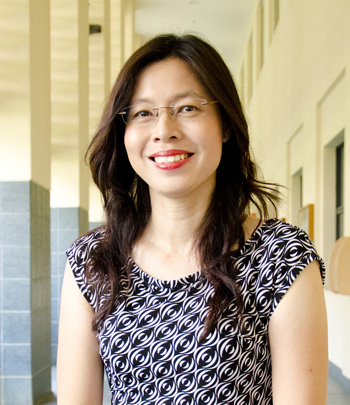Young Children’s Voices in Mathematical Problem Solving
Contributed by Dr Ho Siew Yin and Sng Wei Qin Abbie, from NTUC First Campus, for SingTeach Virtual […]
Read More
For the first time, the Redesigning Pedagogy International Conference was held in conjunction with two other conferences: Arts, Humanities and Literature Conference 2015 and the 11th International CitizED Conference. We ask the organizers to share about the focus of their respective conferences.
In recent years, large-scale international assessments of students have captured the attention of policymakers, researchers and the public. The latest results often make the headlines and generate heated debates about education all over the world.
Amid the cacophony generated by such rankings, some educators are pointing out that student outcomes in Science, Math and literacy alone do not make an education. There is much more to educating a child holistically. This sentiment was reflected in the themes of three conferences that were held jointly in NIE from 2 to 4 June 2015.

Dr Dennis Kwek (left)and Dr Steven Tan, both from the organizing committee of Redesigning Conference International Conference 2015, believe that schooling cannot just be about academic outcomes anymore.
“Schooling cannot just be about academic outcomes anymore; schooling is about the development of hearts and minds,” says Dr Dennis Kwek, an NIE Research Scientist who is also part of the organizing committee of this year’s Redesigning Pedagogy International Conference (RPIC).
The theme of the sixth RPIC was Leaders, Values and Citizenship in 21st Century Education. The committee set this theme to focus on aspects of education that are, as committee member Dr Steven Tan puts it, “not so easily measured but still very important”.
A Teaching Fellow at NIE, Steven felt that the speech by Senior Minister of State for Ministry of Law and Ministry of Education Ms Indranee Rajah at the opening ceremony reinforced this point.
In her speech, Ms Rajah mentioned the cases of two Singapore youths who were self- radicalized and subsequently detained under Singapore’s Internal Security Act.
“Her speech made us sit up and say, this is no small matter. Education is certainly not just about grades – it is more about the hearts and minds of the people,” Steven says. “For 49 years (since independence) we’ve never had any students who were radicalized but now, we have two. Things are going to change.”
For this conference, the organizers invited keynoters who are leading researchers in their respective fields of expertise, such as educational leadership, curriculum, 21st century learning and creativity, to address the delegates.
“Teachers and researchers who read about leadership would invariably have read Prof James Spillane’s work,” says Dennis. Other keynoters are Prof Michael Young from Institute of Education, University of London, Prof Erica McWilliam from Queensland University of Technology, Prof Ian Davis from The University of York and Professor A. Lin Goodwin from Teachers College, Columbia University.
RPIC provides opportunities for teachers to mingle with researchers and scholars, and share their research findings. As much as possible, each concurrent session featured a teacher, NIE researcher and international delegate presenting on similar topics. This was done to maximize their sharing of knowledge.
“Teachers as researchers are becoming increasingly important not because they can do research in schools, but because they can better understand their own practice,” says Dennis. “To be able to share their practices with other people in a conference like this is important.”
Steven hopes the one thing that educators take away from this conference is that it is no longer “business as usual” in the classrooms.
“We shouldn’t be just teaching the way we were taught and teaching what we had been taught,” he says. Times have changed, and so will pedagogies and content knowledge, but the role of teachers will always remain pivotal in their students’ lives.
As Steven puts it, “As educators, our identity has got to be deeper than just being here to cover the syllabus and get a job done. It’s always been more than that.”

Dr Loh Chin Ee, conference convenor for the Arts, Humanities and Literature (AHL) Conference 2015, says that AHL help people see the world differently.
In a globalized world and a multicultural society such as Singapore’s, our students need to be flexible in thinking and adept at seeing things from different perspectives. Humanities education, along with the Arts, has a role in nurturing such competencies, but this is not always obvious to many.
The Arts, Humanities and Literature (AHL) Conference 2015 was a platform to “push for new ideas, innovation and a more visible role for the Arts, Humanities and Literature in Singapore education,” says Dr Loh Chin Ee, the conference convenor. “It is a reminder that they all are important and interlinked.”
For the inaugural conference that was attended by 250 delegates, Chin Ee and her colleagues chose the theme Live(d) Experiences: Imagination, Wonder and Spaces of IM/possibilities.
“We want to look at what’s happening on the ground; what is lived, as opposed to airy-fairy ideas,” says Chin Ee, who is an Assistant Professor with the English Language and Literature Academic Group at NIE. She explains that the Humanities are very much about what we see, how we experience the world, and what we can do about it.
“One thing we wanted to emphasize across AHL is that our students need to be connected to 21st century issues, such as technology, climate change and human trafficking. We don’t want our students to shy away from these issues.”
AHL also evoke our sense of imagination, wonder and possibility. “The humanities, literature, and arts help us imagine and re-imagine; to see the world differently. When you read a book, it gives you an alternative vision of how the future might be,” says Chin Ee.
She and her organizing committee members, including Associate Professor Angelia Poon, Assistant Professor Suzanne Choo, Associate Professor Mark Baildon and Associate Professor Eugene Dairianathan from NIE, hope the conference theme will similarly inspire teachers to try approaches in the classroom that are different from what they are used to.
“I do hope they take away from the conference something in terms of the way they think about their subject, discipline and teaching,” Chin Ee says. “At the end of the day, we want to do this to inspire the teachers, to give them a sense that there are things you can try, and yes, you can do it!”

Associate Professor Jasmine Sim, conference convenor of the 11th International CitizED Conference, notes that citizenship, character and values education cut across all societies.
The 11th International CitizED Conference is probably its most successful ever, says conference convenor Associate Professor Jasmine Sim. Not only did it attract the biggest number of delegates, it was also the most international, with representatives from 14 countries.
Jasmine was particularly happy to see the strong turnout from Asia, as research on citizenship education tends to be dominated by the UK and US.
“For me, it’s not just about organizing a conference. It’s about connecting very seasoned, well-known scholars with new scholars from Asia so that you have new conversations, new ideas generated, and you build the community,” says Jasmine.
The theme Citizenship, Character and Values Education for the 21st Century was chosen because they are key concerns of every country.
“It’s a theme that cuts across all societies, whether you’re rich, poor, East or West,” explains Jasmine. “It’s something we’re all concerned about: What kinds of citizens do we want; what kinds of society do we want; and how do we educate for citizenship in an increasingly globalized context? What values and dispositions are critical?”
Held in Singapore for the first time, the traditionally scholarly CitizED conference also saw an unprecedented number of Singapore educators joining in the discussions. “What I hope is that our local teachers and even our international participants will understand the complex nature of citizenship, and that the concept needs to be understood in context,” says Jasmine.
There is no one universal concept of citizenship: This was an idea that came up often across the different conference sessions.
“People have diverse perspectives and different views because citizenship is not just political, it is also personal and relational,” Jasmine notes. We will need to be aware of the different perspectives so that we can help enact a Singaporean citizenship that will bring about “a more just, more caring society”.
“If we can do so across schools in Singapore,” she says, “we can help to change the culture of learning.”